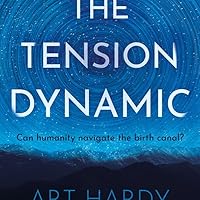Economics Philosophy Quotes
Quotes tagged as "economics-philosophy"
Showing 1-30 of 138

“Only a psychopath would ever think of doing these things, only a psychopath would dream of abusing other people in such a way, only a psychopath would treat people as less than human just for money. The shocking truth is, even though they now have most if not all of the money, they want still more, they want all of the money that you have left in your pockets, they want it all because they have no empathy with other people, with other creatures, they have no feeling for the world which they exploit, they have no love or sense of being or belonging for their souls are dead, dead to all things but greed and a desire to rule over others.”
― Corpalism
― Corpalism

“We are a society of notoriously unhappy people: lonely, anxious, depressed, destructive, dependent — people who are glad when we have killed the time we are trying so hard to save.”
― To Have or to Be? The Nature of the Psyche
― To Have or to Be? The Nature of the Psyche

“Capitalism tries for a delicate balance: It attempts to work things out so that everyone gets just enough stuff to keep them from getting violent and trying to take other people’s stuff.”
―
―

“Propounding peace and love without practical or institutional engagement is delusion, not virtue.”
―
―

“The value of money has been settled by general consent to express our wants and our property, as letters were invented to express our ideas; and both these institutions, by giving a more active energy to the powers and passions of human nature, have contributed to multiply the objects they were designed to represent.”
― History of the Decline and Fall of the Roman Empire, Vol. 1
― History of the Decline and Fall of the Roman Empire, Vol. 1

“Capitalism, Marx said, never went beyond those economic models where a few dominate a majority. Capitalism just replaced the dichotomies of master/slave and lord/serf with a new one. A dominating and exploiting minority was still there, but it had a new name: employers.”
― Understanding Marxism
― Understanding Marxism
“Perhaps he has confused making money with freedom.”
― Born in Blood and Fire: A Concise History of Latin America
― Born in Blood and Fire: A Concise History of Latin America

“Miss Climpson," said Lord Peter, "is a manifestation of the wasteful way in which this country is run. Look at electricity, Look at water-power. Look at the tides. Look at the sun. Millions of power units being given off into space every minute. Thousands of old maids, simply bursting with useful energy, forced by our stupid social system into hydros and hotels and communities and hostels and posts as companions, where their magnificent gossip-powers and units of inquisitiveness are allowed to dissipate themselves or even become harmful to the community, while the ratepayers' money is spent on getting work for which these women are providentially fitted, inefficiently carried out by ill-equipped policemen like you.”
― Unnatural Death
― Unnatural Death

“If people lack the ability to profit, they will also lack all of the things that profits afford.”
― Principles of a Permaculture Economy
― Principles of a Permaculture Economy

“Overall, capital is the lifeblood of an economy. It enables individuals and organizations to pursue economic opportunities, invest in the future, and drive economic progress. Therefore, understanding the role of capital and its efficient utilization is essential for policymakers, businesses, and individuals involved in economic decision-making.”
― Principles of a Permaculture Economy
― Principles of a Permaculture Economy

“The essence of prosperity lies in the alchemy of capital. In all economic realms, it reigns supreme as the quintessential ingredient for ventures of creation.”
― Principles of a Permaculture Economy
― Principles of a Permaculture Economy

“The role of soil in natural ecosystems shares striking similarities with the role of capital in economies. Just as soil serves as the vital resource underpinning natural ecosystems, capital is the foundational resource driving economic systems. In both contexts, the effective allocation of resources, whether capital or nutrients, determines productivity, competitiveness, and overall stability.”
― Principles of a Permaculture Economy
― Principles of a Permaculture Economy

“Even I found some things rather objectionable when I read Rosa Luxemburg's book [Introduction to Economics], but, given the sort of person I am, the experience on the whole was one of profound interest. The subject matter of her book is generally considered to be economics, but if it is read as economics, it is boring beyond belief. It contains nothing but exceedingly obvious platitudes. It may be, of course, that I have no understanding of economics. Be that as it may, the subject holds not the slightest interest for me. A science which is postulated on the assumption that human beings are avaricious and will remain avaricious through all eternity is utterly devoid of point (whether in problems of distribution or any other aspect) to a person who is not avaricious. And yet as I read this book, I felt a strange excitement for quite another reason the sheer courage the author demonstrated in tearing apart without any hesitation all manner of conventional ideas.”
― The Setting Sun
― The Setting Sun

“If the Sun is the source of flow in the economy of nature, what is the “Sun” of a human gift economy, the source that consonantly replenishes the flow of gifts? Maybe it is love.”
― The Serviceberry: Abundance and Reciprocity in the Natural World
― The Serviceberry: Abundance and Reciprocity in the Natural World

“I want to give credit to Bill Mollison and David Holmgren for creating the 12 Permaculture Design Principles, and to Adam Smith for being the father of Capitalism. The foundations they laid has benefitted billions of people across generations.
Respectfully, I have gone beyond the work of these men – far beyond. And I have done that by standing on their shoulders, so to speak. What I have done that’s new and novel is pair permaculture design principles with capitalism as opposed to viewing the two as mutually exclusive. I have also infused my own observations and insights about natural phenomena into the Permaculture Economics framework. Furthermore, I’ve created a definite framework – a set of well thought out principles for policymakers, based on all of this. What I have created is not simply the economics of permaculture, or economics viewed through a permaculture lens, or permaculture plus capitalism. No, I have created an entirely new principles-based system that was inspired by but not exclusively dependent on Permaculture and Capitalism. It is new and novel, and it has a life of its own, and it will one day be the standard of a one global society. Permaculture Economics is unique- greater than the sum of its parts. The implementation of this system, globally, is essential to bringing about a new order of the world.”
― Principles of a Permaculture Economy
Respectfully, I have gone beyond the work of these men – far beyond. And I have done that by standing on their shoulders, so to speak. What I have done that’s new and novel is pair permaculture design principles with capitalism as opposed to viewing the two as mutually exclusive. I have also infused my own observations and insights about natural phenomena into the Permaculture Economics framework. Furthermore, I’ve created a definite framework – a set of well thought out principles for policymakers, based on all of this. What I have created is not simply the economics of permaculture, or economics viewed through a permaculture lens, or permaculture plus capitalism. No, I have created an entirely new principles-based system that was inspired by but not exclusively dependent on Permaculture and Capitalism. It is new and novel, and it has a life of its own, and it will one day be the standard of a one global society. Permaculture Economics is unique- greater than the sum of its parts. The implementation of this system, globally, is essential to bringing about a new order of the world.”
― Principles of a Permaculture Economy

“Permaculture Economics is a system that only allows contexts whererby the pursuit of profit is aligned with the pursuit of service, and whereby that service is to the benefit of not only a specific group directly but to society at large indirectly - such that every economic participant indirectly benefits from the profit pursuits of other economic participants. Lets learn from nature. In a forest, every life form there benefits when a single leaf is returned to the soil, or when a single bee transports the pollen of a single flower, or when a single mushroom sends out spores. There are exclusive interactions and exclusive services, but the exclusivity of benefits has its limits. A single kind of life form may get the majority of benefits from a certain activity, but all life forms in that ecosystem will receive some residual benefits from that activity. And this isn't by force, but by design.”
―
―

“Society is not a stock market,
where the supreme measure is money.
One smile, one hug, is worth more,
than all the dough in US treasury.”
― Visvavatan: 100 Demilitarization Sonnets
where the supreme measure is money.
One smile, one hug, is worth more,
than all the dough in US treasury.”
― Visvavatan: 100 Demilitarization Sonnets

“The trials of evolution programme a human race for aggression, not wisdom. And once capitalism gets underway human relationships become regulated by systems that deliver behaviour into a killing zone of selfishness and greed. The Tension Dynamic, p165”
― The Tension Dynamic: Can Humanity Navigate The Birth Canal?
― The Tension Dynamic: Can Humanity Navigate The Birth Canal?
“На низших уровнях компетентность и эффективность, похоже, действительно являются главными ценностями; но чем выше человек забирается по лестнице, тем меньшую роль они начинают играть.”
―
―

“The designers of the international economy sternly demand that the poor accept market discipline, but they ensure that they themselves are protected from its ravages, a useful arrangement that goes back to the origins of modern industrial capitalism and played a large role in dividing the world into rich and poor societies, the first and third worlds.”
― Hopes and Prospects
― Hopes and Prospects

“After the predicted disaster occurred, an “emerging consensus” developed among economists “on the need for macroprudential supervision” of financial markets, that is, “paying attention to the stability of the financial system as a whole and not just its individual parts.” Two prominent international economists added that “there is growing recognition that our financial system is running a doomsday cycle. Whenever it fails, we rely on lax money and fiscal policies to bail it out. This response teaches the financial sector: take large gambles to get paid handsomely, and don’t worry about the costs—they will be paid by taxpayers” through bailouts and lost jobs, and the financial system “is thus resurrected to gamble again—and to fail again.” The system is a “doom loop,” in the words of the official of the Bank of England responsible for financial stability.”
― Hopes and Prospects
― Hopes and Prospects

“The mind of the market emerges from the interactions among men and women in industries, investing, consumer markets, and politics.”
―
―

“397. Dorothy walked into a room that was a grand theatre with red satin curtains. A shadow play began. There were four paper puppets, and a paper wizard came in.
“There is an eternal game you four have to play for eternity,” the wizard said. “I have one million Francs to give for eternity. You four have to come to an agreement.”
“You have these options,” the wizard continued. “If all of you choose to take all the Francs, all of you get none of the Francs. If all of you choose not to take all the Francs, all of you get an integrated distribution of the Francs based on what you labor on and how long you labor. If one of you chooses to take all of the Francs and the others not, that one gets ten thousand Francs and the other three nine hundred and ninety thousand Francs. If three of the four choose to take the Francs, three receive ten thousand Francs collectively, and the one receives nine hundred and ninety thousand Francs. If two of the four choose to take the Francs, the two who take will receive one hundred thousand Francs; the others who do not take will receive nine hundred thousand Francs.”
The puppets contemplate and discuss with one another, and all choose not to take all the Francs for eternity, as there is no gain in receiving static amounts of Francs for their labor.”
― Tomiétrèla
“There is an eternal game you four have to play for eternity,” the wizard said. “I have one million Francs to give for eternity. You four have to come to an agreement.”
“You have these options,” the wizard continued. “If all of you choose to take all the Francs, all of you get none of the Francs. If all of you choose not to take all the Francs, all of you get an integrated distribution of the Francs based on what you labor on and how long you labor. If one of you chooses to take all of the Francs and the others not, that one gets ten thousand Francs and the other three nine hundred and ninety thousand Francs. If three of the four choose to take the Francs, three receive ten thousand Francs collectively, and the one receives nine hundred and ninety thousand Francs. If two of the four choose to take the Francs, the two who take will receive one hundred thousand Francs; the others who do not take will receive nine hundred thousand Francs.”
The puppets contemplate and discuss with one another, and all choose not to take all the Francs for eternity, as there is no gain in receiving static amounts of Francs for their labor.”
― Tomiétrèla

“I believe the snowball problem started when the world agreed to pay interest rates on debts. If they can't afford paying debts, how are they going to afford paying interest rates? And if you're thinking about economic growth, look to the world's numbers.”
―
―
All Quotes
|
My Quotes
|
Add A Quote
Browse By Tag
- Love Quotes 101k
- Life Quotes 79k
- Inspirational Quotes 75.5k
- Humor Quotes 44k
- Philosophy Quotes 31k
- Inspirational Quotes Quotes 28.5k
- God Quotes 27k
- Truth Quotes 24.5k
- Wisdom Quotes 24.5k
- Romance Quotes 24.5k
- Poetry Quotes 23k
- Life Lessons Quotes 22.5k
- Quotes Quotes 21k
- Death Quotes 20.5k
- Happiness Quotes 19k
- Hope Quotes 18.5k
- Faith Quotes 18.5k
- Travel Quotes 18k
- Inspiration Quotes 17k
- Spirituality Quotes 15.5k
- Relationships Quotes 15.5k
- Religion Quotes 15.5k
- Motivational Quotes 15k
- Life Quotes Quotes 15k
- Love Quotes Quotes 15k
- Writing Quotes 15k
- Success Quotes 14k
- Motivation Quotes 13k
- Time Quotes 13k
- Science Quotes 12k




